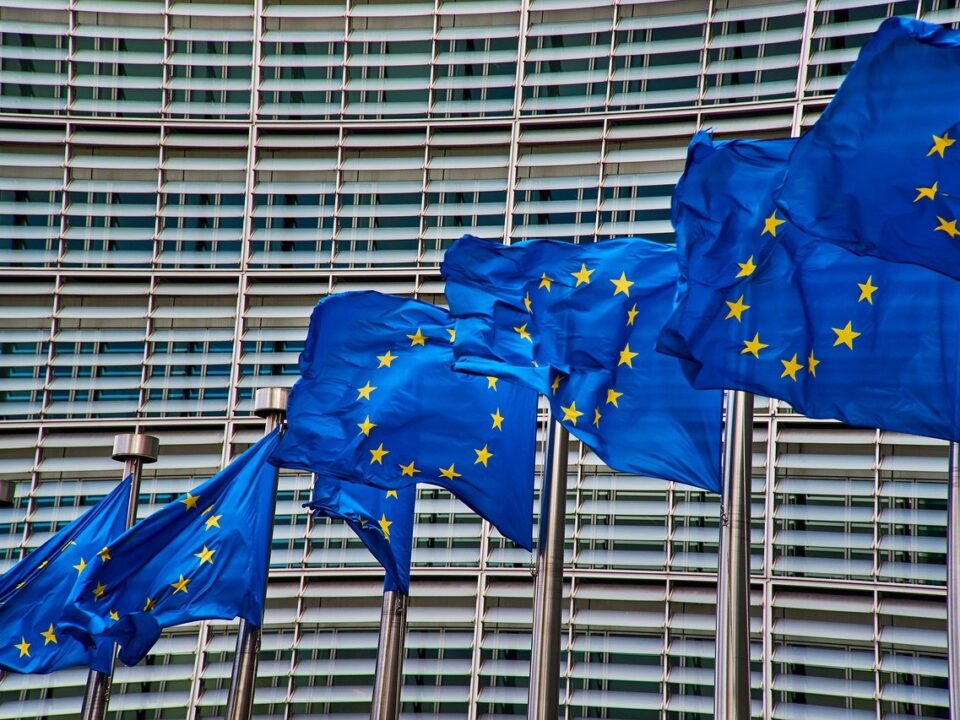Deplatformed and disconnected: How big tech platforms are locking Africans out of the digital economy
Locked out again – a pattern of digital exclusion
Across the African continent, young professionals, entrepreneurs, and freelancers are increasingly reporting unexplained suspensions1, account shutdowns, or impossible-to-navigate verification loops – mostly on platforms like LinkedIn. LinkedIn’s rollout of ID verification, supposedly for protection against bot or scam accounts, has now – intentionally or unintentionally – become a barrier for many users in Africa where the required tech infrastructure to complete these verifications simply doesn’t exist; where it does, it exists for a premium cost unaffordable to many. This raises a central question: who are global platforms really designed for? And since these platforms now function as critical infrastructure for employment, expression, trade, and learning, shouldn’t their governance systems reflect this level of importance?
Samuel, a software engineer in Lagos, narrated his ordeal to me during an interview:
“Three of my accounts have been shut down now due to ID verification. I don’t have a problem with verification, right, since it is their (LinkedIn’s) policy. But I have a problem with the verification platform, where the only thing that works is an international passport. I have used my NIN (Nigerian National ID), and it is not working. This is not the way it works in the US, I believe. If you will ask people to verify, then also respect the easier forms of identification they have. Not everyone can afford an international passport, right?”
The verification trap
At the heart of this problem lies a flawed assumption: that digital identity can be universally verified using the same tools. In LinkedIn’s case, verification often requires users to scan a Near Field Communication (NFC)-enabled passport using a compatible smartphone. But across much of Africa, NFC-enabled passports are still not standard-issue, and budget smartphones – often lacking NFC chips – remain the norm.
According to a 2025 survey by Research ICT Africa, only 12% of Africans own smartphones with NFC capability. Meanwhile, passport issuance remains low: fewer than 20% of adults in sub-Saharan Africa possess valid international passports, and most of those lack biometric/NFC features which can only be accepted by the verification platforms. This leaves a vast population of legitimate users in limbo – unable to prove their identity, unable to appeal, and ultimately unable to participate in the global professional community.
“I felt like I didn’t exist,” said Michael, a Lagos-based data analyst summarising his experience after being locked out of LinkedIn. “I had no access to the job boards, to recruiters, to my recommendations. For weeks, it felt like I was invisible.” Beyond the experiences of those I interviewed, I too experienced this ordeal. And mine is quite unique since I come from the privileged class of those who are able to afford a good smartphone and a passport that now costs two-times the minimum wage in Nigeria. Yet I was locked out five consecutive times from LinkedIn in a space of six months since the beginning of the year.
Platforms as gatekeepers of opportunity

Figure 1: Internet penetration rate in Africa as of June 2022, compared to the global average (Statista, August 2023).
Despite having over 645 million internet users – more than the entire European Union (which has approximately 450 million users) – Africa remains on the margins of global tech governance. Decisions like the one in question that affect millions across the continent are often made in boardrooms in California, far removed from the realities of African digital life. As a result, platforms have become gatekeepers to the digital economy. This dynamic produces what can only be described as techno-autocracy – a condition in which private platforms exercise state-like powers (identity recognition, information control, and economic access) without democratic oversight or local accountability.
Content moderation and trust and safety teams were ostensibly created to address these challenges but they have not. For Africans, the absence of equitable and inclusive platform governance mechanisms has severe consequences. The risks extend beyond simple censorship to outright erasure. Professional profiles can be deleted, online businesses suspended, and livelihoods disrupted – all without meaningful explanation or accountability. My own experience of being deplatformed illustrates how fragile access to opportunity can be when dependent on foreign-owned systems with opaque rules.
Recent scholarship reinforces these thoughts – that moderation at scale is far from neutral. A 2024 Cornell University study on algorithmic randomness in content moderation highlights predictive multiplicity, showing that equally effective machine learning models can arbitrarily classify the same content differently. This finding raises serious concerns about randomness, bias, and uneven suppression of speech. In practice, it confirms that the values and priorities of those who design these systems – rather than any neutral principle – determine how platforms operate. And too often, those who rely on these platforms in Africa have no voice in shaping the rules that govern their digital lives. Whether this is the case with LinkedIn, it remains to be determined.
Beyond dependency: the case for a sovereign African intranet
What the continent urgently needs is not more platforms policing our identities, but infrastructure that respects them. A sovereign African intranet would serve as an ecosystem of platforms, services, and tools built around the lived realities, languages, and infrastructures of African users. It doesn’t mean cutting off the global internet – it means building resilient alternatives and protocols that ensure Africans are not locked out of the digital world when foreign platforms falter or discriminate.
An African intranet would prioritise local identity standards, support for indigenous languages, transparent moderation policies, and interoperable platforms that align with Africa’s developmental goals – not foreign profit margins. It would also ensure that African data is stored on the continent, governed by African law, and protected from exploitation. Just as China built its Great Firewall for control, Africa can build a Digital Bridge – for empowerment, resilience, and self-determination.
No one should ever be in a place where they have their livelihoods taken away from them due to inability to verify their ID via infrastructures foreign to them.
Regional initiatives like Smart Africa and the African Union’s Digital Transformation Strategy (2020–2030) have already begun offering roadmaps for this kind of infrastructure, emphasising data localisation, cross-border digital markets, and inclusive connectivity. “African digital sovereignty can only be achieved if it is built on systems that understand our infrastructure, our challenges, and our languages – not platforms that punish users for not meeting agnostic technical standards.
How does this affect Europe? Toward a digital future that includes us
Europe already has plans to implement the European Digital Wallet which will make identity verification easier for its citizens while maintaining privacy. This is already a step in the right direction when thinking of continental solutions to big tech’s problems. This tool is expected to be implemented by EU member states by 2026. It is a welcomed development that preserves personal privacy while empowering citizens with the ability to partake in the digital economy. But the fact that the EU had to address this as a specific policy point shows the continuing growing demands from citizens for stronger data protection and privacy safeguards.
LinkedIn’s demand for passport verification is unnecessary. The platform already has systems in place to identify fake accounts and profiles. So how can it justify asking a premium subscriber – who has already verified their identity through a credit card payment – for additional documentation? This was my experience, and I find it completely unjustifiable.
Ultimately, the answer to this problem lies in the concept of inclusion by design. Digital inclusion can no longer be treated as an afterthought. Whether by implementing a multimodal design framework involving user-generated ID pathways tied to government services or implementing a pre-account creation identity verification framework, platforms must think inclusion in their design and platform governance. They must acknowledge their global footprint and take responsibility for serving the diverse realities of their users.2
Designing for inclusion means listening to users in the Global South, incorporating diverse infrastructure-aware policies, and then establishing those fair, responsive governance systems.
Yesterday, it was Donald Trump, a sitting President of the United States, deplatformed on social media in 2020 for political reasons. Today it is African professionals deplatformed due to ID verification infrastructure disparity. Tech autocracy manifests in subtle different ways. Who knows what it might be for Europe tomorrow? Until then, the question remains: If the future is digital, whose future is it?
Footnotes
1. In preparation for this opinion editorial I conducted six interviews with victims of LinkedIn’s new verification policy. The interviewees have professional backgrounds in software engineering, data analytics, civic advocacy, and website design.
2. LinkedIn’s instruction for users attempting to verify their ID in countries outside North America: “In many additional countries: Identity verification is performed by Persona, a third-party identity verification service. It’s available for those with a valid NFC-enabled passport. To learn more about the availability, how this verification works, and the steps to verify, check out identity verification via Persona.”






